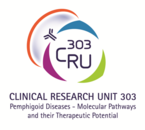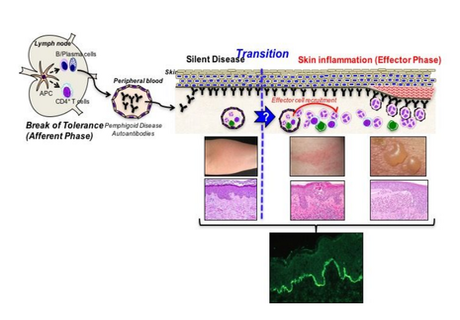Introduction
Autoimmune diseases affect approximately 5% of the total world population. Herein, antibody-induced tissue inflammation leading to the recruitment of effector cells into peripheral tissues is a hallmark of multitude of autoimmune diseases. Understanding the mechanisms, driving effector cell recruitment upon antibody binding to its antigen, is therefore essential to delineate the pathogenesis of autoimmune diseases and key to develop new more specific and more effective therapeutic strategies for these diseases, whose treatment currently still largely relies on systemic immunosuppression, which is commonly linked to severe adverse drug effects.
Pemphigoid diseases are a group of chronic, autoantibody-driven diseases of the skin and mucous membranes. Their autoantigens are, in contrast to many other autoimmune diseases, unequivocally defined, and the exposed location of inflammatory process leave the affected tissue directly accessible for observation and manipulation throughout the entire course of inflammation from its emergence to its resolution. This highlights pemphigoid diseases as excellent paradigm diseases to study the molecular mechanisms driving antibody-induced tissue inflammation. The Clinical Research Unit (CRU) 303 Pemphigoid Diseases – Molecular Pathways and their therapeutic potential is therefore dedicated to fully elucidate the mechanisms driving the effector phase of pemphigoid diseases, i.e., the events following the deposition of autoantibodies in the skin, finally leading to skin inflammation. Herein, the CRU 303 primarily conducts translational research aiming at quickly converting new scientific insights into clinical usage. In this framework, the CRU 303 is also dedicated to the training of Clinician Scientists, i.e., a training for physicians in bench research. Such trained people, equally capable of research and patient treatment, are urgently required in to further progress modern biomedicine.


